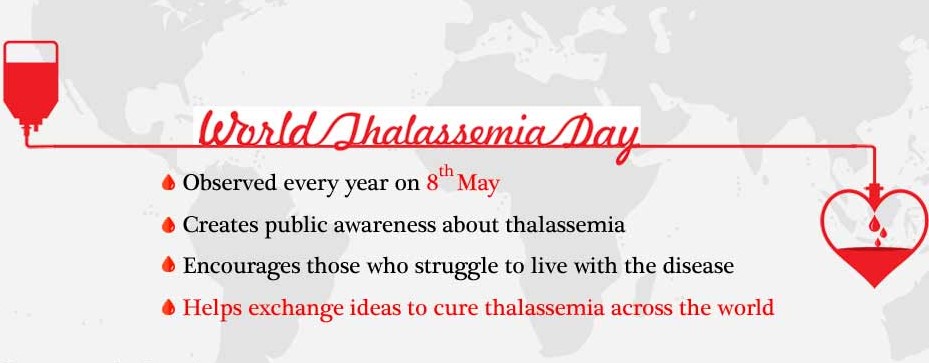May 8 (Punjab Khabarnama) : Thalassemia is a genetic disorder characterized by insufficient haemoglobin production, leading to a shortage of red blood cells and, consequently, anaemia. While carriers of the thalassemia gene may lead normal lives, those with thalassemia major, have to undergo repeated transfusion, have increased susceptibility to various infections, hepatomegaly splenomegaly, bone issues and other health complications, including organ failure. Thalassemia can be of different types, but majorly can be alpha or beta. World Thalassaemia Day is marked every year on May 8 to raise awareness around this genetic disorder, and support those who are struggling with it and their caregivers, support research for its cure, and busting myths around the disease.
World Thalassaemia Day 2024: History of World Thalassaemia Day
In the year 1994, World Thalassaemia Day was first established by Founder of Thalassemia International Federation (TIF) Panos Englezos in the memory of his son George, who died of Thalassemia. The day was created to make efforts to fight the disease, remember those who lost their lives to it, and find a cure for it. It was also an attempt to bring together general public, public authorities, healthcare professionals, and industry representatives together spread awareness around prevention, management and treatment of the disease.
Thalassemia awareness also gained momentum through the efforts of patient support groups, healthcare professionals, and advocacy organizations around the world. These groups aimed to highlight the challenges faced by individuals living with thalassemia and their families, including the need for regular blood transfusions, iron chelation therapy, and access to quality healthcare.
World Thalassaemia Day 2024: How World Thalassemia Day is celebrated
On World Thalassemia Day, various activities and events are organized by healthcare institutions, patient support groups, and community organizations. These activities may include educational seminars, blood donation drives, fundraising events for thalassemia research and patient support, awareness campaigns through media and social platforms, and advocating for improved healthcare policies and services for thalassemia patients.
World Thalassaemia Day 2024: Diagnosis
“Diagnostic tests, such as haemoglobin electrophoresis and DNA analysis, confirm thalassemia types and severity. Prenatal diagnosis by CVS/ Amniocentesis can help understand the status in womb. Preimplantation genetic testing {PGT (M)}, where embryos can be screened and the healthy embryo can be implanted. Early detection enables proactive management, including treatment plans and family planning decisions. Empowering individuals through education and accessible screening programs is crucial for prevention and improved outcomes,” says Dr. Dipanjana Datta, BGCI Level II certified Genetic Counselor at Renew Healthcare.
“Early detection through the Hb HPLC blood test is crucial in managing thalassemia and securing the future well-being of generations to come. With informed decisions enabled by premarital screening, couples can navigate family planning and prenatal care effectively. Awareness and proactive measures like genetic counseling offer hope in preventing the birth of affected children. While thalassemia may not always be evident by appearance alone, its impact can be profound, necessitating lifelong treatments like blood transfusions and iron chelation in the absence of curative options. By emphasizing early detection and promoting premarital screening, we can alleviate the burden of this genetic disorder on families and healthcare systems, fostering healthier outcomes for all,” says By Dr. Rahul Naithani Director & Head Hematology & Bone Marrow transplant, Paras Health, Gurugram.

